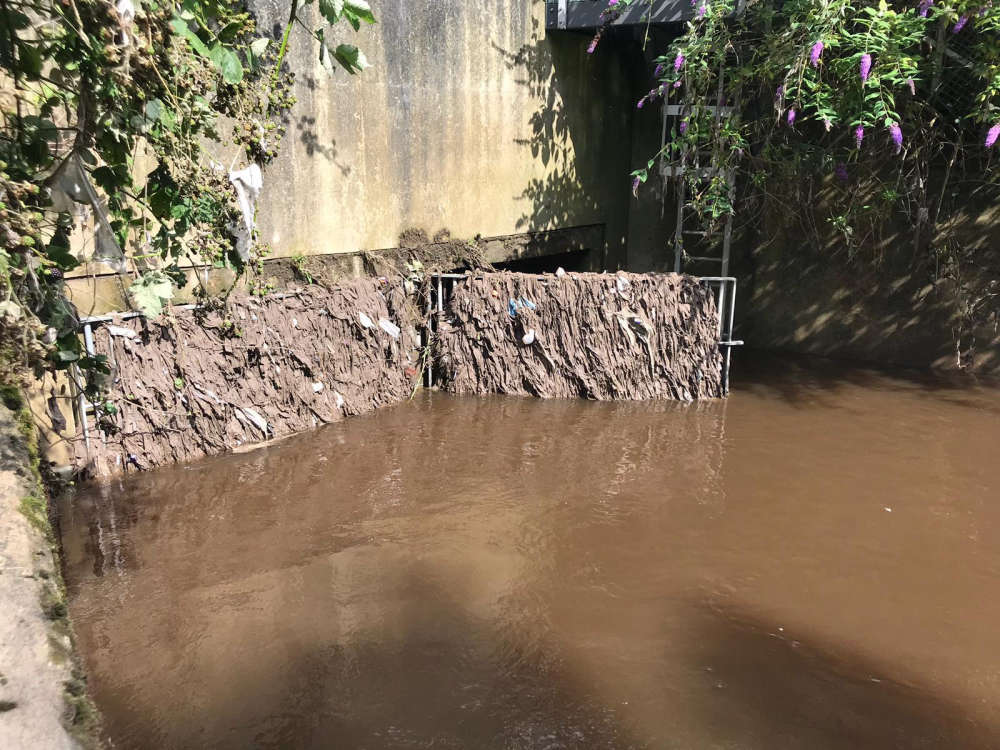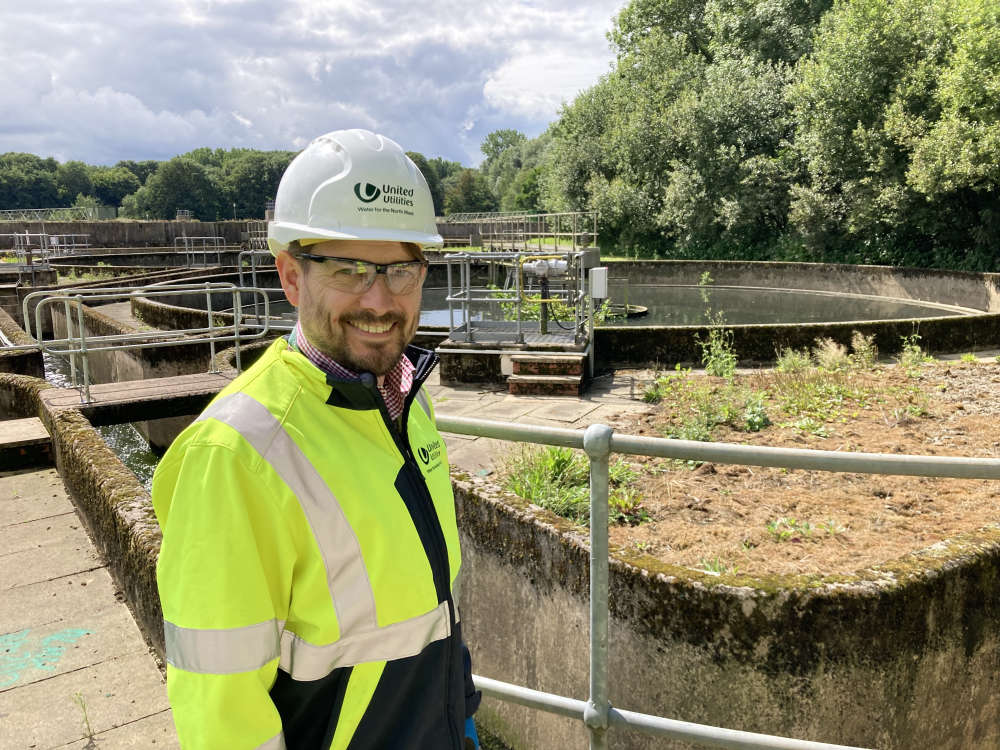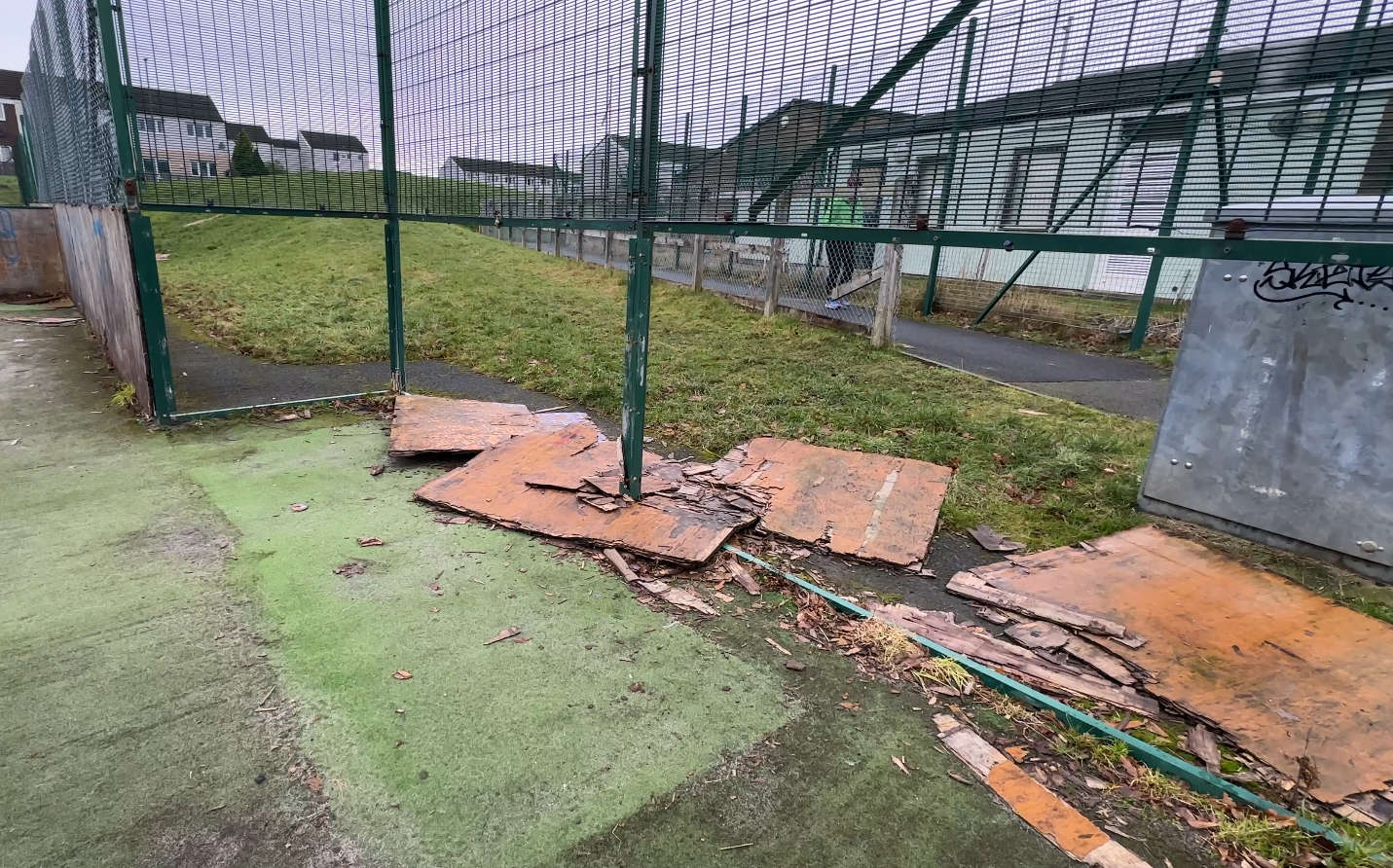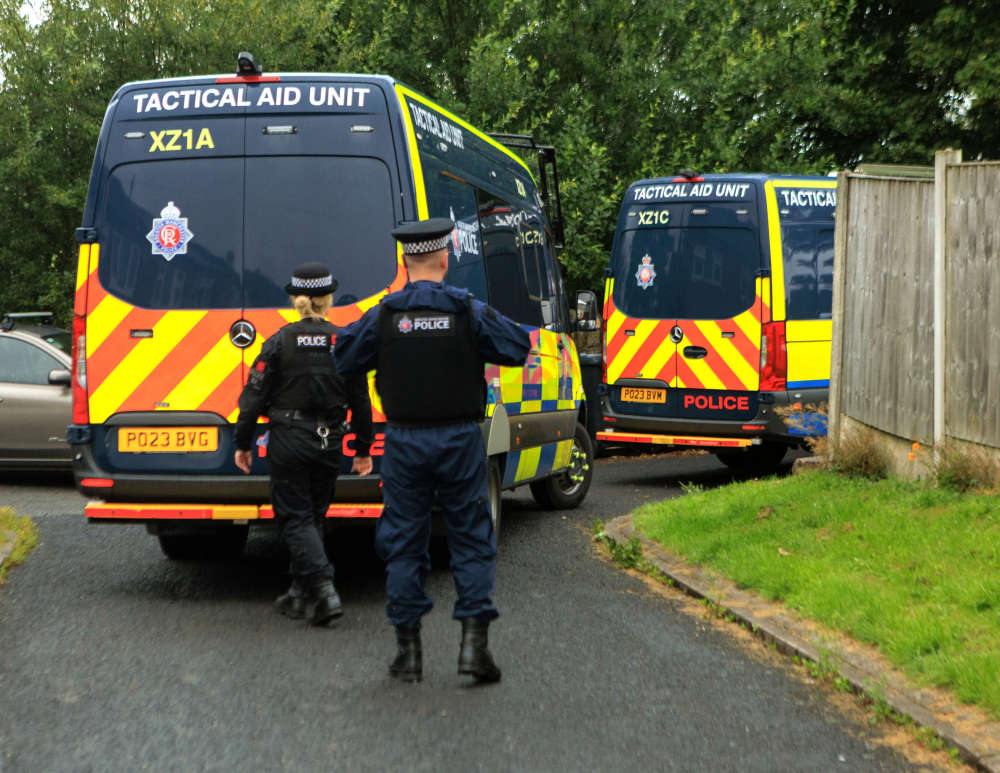
The River Tame is one of the dirtiest waterways in Greater Manchester and spent decades with very little sign of life as a result, but now wildlife is returning.
The huge river flows from the Pennines, through the bulk of its namesake borough Tameside and into Stockport. It was once so polluted that no fish actually inhabited it 50 years ago, according to Mersey Rivers Trust.
The industrial revolution and sewage being pumped into the water are seen as the main contributors to wildlife in the river dying out – but now things are starting to change.
United Utilities are investing £215m to improve water quality by increasing storage capacity and bettering infrastructure at their sewage facilities. This cash injection will be rolled out over the next five years in Tameside at their four sites at Ashton, Dukinfield, Hyde and Mossley – all of which pump treated wastewater back into the river.
The pollution problems arise when untreated sewage from the sites comes through the overflows and into the water. United Utilities hopes the upgrades will reduce the number of times the storm overflows are used to do this.
This investment has been a long time coming for John Sanders, who is director of strategy and project development at Mersey Rivers Trust.
John told the Local Democracy Reporting Service: “The River Tame is one of our priority rivers we’re working on because it’s one of the main arteries for the River Mersey. It’s one of the poorest quality rivers in the whole Mersey system.
“It suffered a lot during the industrial revolution, 200 years of damage from factories and urbanisation. Years ago this would’ve all been rural areas.
“It’s one of the worst quality rivers in Greater Manchester, so the River Tame and the River Irk are our main priorities.
“We’ve put some trees in the river to make some habitats for fish, in a hope to get the population back to what it was 200 years ago. We’re starting to see the species coming back.
“So 50 years ago there were no fish in this river at all, they were wiped out. Slowly they’ve been returning, but still small in numbers.
“United Utilities is by far the largest investor in the river, compared to the local authority or environment agency. We hope we can run activities that work on the back of what they’re doing.
“We’re starting to see improvement in water quality over the last five years. We still suffer quite a few pollution incidents on this river, for example there was a chemical leak at Greenfield the other weekend.
“We would like United Utilities to go faster and further but we appreciate this work can’t always be done at the drop of a hat. The recent investment was welcomed, we’ve got to work with them.
“Our focus is doing work that will make a real difference.”
On the back of investments from United Utilities, the Mersey Rivers Trust is working with local schools, community groups and volunteers to do what they can to educate and help improve water quality both for the short-term and long-term.
In collaboration with the water company, they have set up a working group made up of a number of volunteers and local authorities to help identify issues with the waterways in the area. John also welcomed the investment from United Utilities into the River Rangers, who proactively patrol the banks of rivers to check assets, organise maintenance, and clean litter and debris.
This collaboration in the area comes at a time when, across the country, water companies are increasingly coming under fire for spilling sewage into rivers when they reach capacity. Politicians have even called to nationalise water companies in the House of Commons, however that was in response to the Thames Water £3bn bailout in March.

Mark Sewell, wastewater catchment manager for Greater Manchester at United Utilities
Mark Sewell, wastewater catchment manager for Greater Manchester at United Utilities, said: “Some of the rivers getting focus in the south are not necessarily post-industrial northern rivers, which are a different set of challenges to what they’ve got.
“Coming from a very low baseline we’ve seen lots of improvement. Since the 1990s, treatment processes have improved significantly.
“From a sewage perspective, it’s down to United Utilities to be mainly responsible. We work within that regulatory framework to prioritise identification and investment.
“The Environment Act has come in, which has been driving some of the work as well.”
United Utilities are now looking to try and get rainwater that comes off the road out of their process, as that takes up the majority of their storage capacity.
Mark explained that you can only build so much storage, so when there are floods and huge deluges of rain – their system will inevitably overflow. An overflow means untreated sewage gets into the waterways.
This is what United Utilities are trying to avoid as it means more polluted rivers, for which they receive heavy criticism. The LDRS even got a tour of the Dukinfield waste water treatment works to learn about what not to flush – to avoid clogging up the system.
According to Mark, the solution to helping reduce the amount of water they take on is to increase greenery and vegetation in areas of high water levels and to divert water away from the drains through water management plans.
During that tour, Mark said: “After it goes through the treatment process, the wastewater is discharged into the River Tame. It’s part of the water cycle.
“We’ve seen fatbergs that develop when people pour cooking oils and fats down the drains and they merge with wet wipes. They can damage pumps and the treatment process as well.
“One of the key messages we want to share with communities is what not to flush. Pee, poo and paper are the only things that should be going down the toilet – the three Ps.”
According to data from The River Trust from 2024:
- At Dukinfield Waste water treatment works: In 2024,this sewer storm overflow spilled 24 times for a total of 92.99 hours, discharging into the River Tame
- Ashton Sewage treatment works: In 2024, this sewer storm overflow spilled 38 times for a total of 267.34 hours, discharging into the River Tame
- Mossley Sewage treatment works: In 2024, this sewer storm overflow spilled 39 times for a total of 96.25 hours, discharging into the River Tame
- Hyde Waste water treatment works: In 2024, this sewer storm overflow spilled 33 times for a total of 218.35 hours, discharging into the River Tame
United Utilities commitment to £215m investment will see their wastewater works in Tameside, which includes Dukinfield, Ashton and Hyde facilities enhanced. All three will receive new technology to ensure treated wastewater goes back into the borough’s waterways with reduced phosphorus and ammonia levels.
The wastewater scheme is set to roll out over the next five years, with the first project set to start later in 2025.


 Gamesley Community Centre gears up for major sports revamp
Gamesley Community Centre gears up for major sports revamp
 Public inquiry announced into rail upgrade that could leave villages ‘cut off’ for months
Public inquiry announced into rail upgrade that could leave villages ‘cut off’ for months
 Neighbourhood expansion approved next to primary school after delay
Neighbourhood expansion approved next to primary school after delay
 One year on from shooting, Operation Vulcan continue to target crime in Derker
One year on from shooting, Operation Vulcan continue to target crime in Derker


